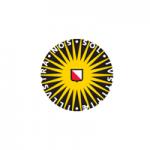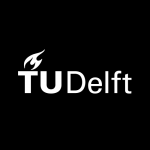项目介绍
Are you looking for a challenging position in a dynamic setting? The Institute for Logic, Language and Computation (ILLC) (https://www.illc.uva.nl/) currently has a vacant PhD position as part of the the UvA starter grant Making (none)sense with AI, led by principal investigator Dr. Davide Beraldo. The Institute for Logic, Language and Computation (ILLC), is an interfaculty research institute of the Faculty of Humanities and the Faculty of Science.
What are you going to do?
The recent breakthroughs in Large Language Models (LLMs) have reinvigorated the debate around the status of Artificial Intelligence (AI) in relation to the notions of meaning and sense-making. It has become commonplace to directly adopt the vocabulary characteristic of Human Intelligence (HI) when describing the properties and performances of AI. For instance, LLMs such as ChatGPT are often said to “learn”, “communicate” and “understand”. But in what sense can machines be said to “make sense”? Since the inception of information processing technologies, this grand question has occupied theorists and researchers across many disciplines, including philosophy, psychology, and computer science. Within these fields, meaning is typically approached as an abstract property of language, an individual outcome of cognition, or a formal task of computation.
This project aims to build upon alternative approaches that emphasize the relational, processual, and reflexive nature of meaning. For example, ethnomethodology is a heterodox sociological approach that conceptualizes meaning as emerging from the concrete, ongoing, empirical context of social interaction. It positions itself as the study of “ethnomethods”—the practices people employ to make sense of and make sense to one another. While ethnomethodology has been highly influential in the field of Human-Machine Interaction, the advent of LLMs opens up radically new avenues for exploring the “barrier of meaning” between humans and machines, and for reflecting on how humans and machines make (and don’t make) sense of, to, and with each other.
This PhD project seeks to explore the issue of meaning(-making) in relation to AI from perspectives that emphasize its relational, processual, and reflexive nature—drawing inspiration from ethnomethodology, but also open to other approaches such as socio-semiotics and systems theory. The project combines theoretical development with empirical investigation of encounters between humans and LLMs, or other instances of conversational/social AI. The overarching goal is to contribute to the respecification of the debate on the boundaries between the human and the artificial, grounded in theoretical reflexivity and methodological rigor.
Candidates can develop studies of their own choosing within the broader scope of the project. We welcome research ideas that combine ambitious theoretical development with empirical research; the latter based on a number of methods including observational studies, conversation analysis, (quasi-)experiments, or computational methods. We invite interested candidates to prepare short proposals (details below) inspired by, but not limited to, the following themes:
- humans making sense of/to/with AI;
- AI making sense of/to/with humans;
- AI and nonesense/absurdism/ambiguity;
- misunderstandings between humans and AI;
- taken-for-granted/common sense knowledge of AI;
- reflexivity and indexicality in AI;
- machine-machine interaction;
- situatedness of AI development and/or adoption;
- in/commensurability between human and artificial meaning-making
Tasks and responsibilities
- submission of a PhD thesis within the period of appointment;
- publishing single-authored and co-authored peer reviewed articles;
- presenting intermediate research results at workshops and conferences;
- organising knowledge dissemination activities;
- participation in the Research School and Faculty of Humanities PhD training programmes.
What do you have to offer?
You are a promising student with the ambition to pursue an academic career. You are interested in both theoretical and empirical research. You are curious about exploring unconventional and heterodox academic approaches. You have the capacity to balance work and leisure in a healthy and sustainable manner.
Your experience and profile
Candidates need to have the following qualifications:
- a completed Master’s degree in social sciences, linguistics, communication science, media studies, artificial intelligence or a related discipline;
- excellent research skills demonstrated by an outstanding Master’s thesis and a demonstrable capacity to develop a track record of publishing in high-ranking journals and/or with leading presses;
- a demonstrable interest in inter/trans-disciplinary research at the intersection of technology, culture and society;
- familiarity with ethnomethodology or affine relational perspectives on meaning-making (e.g., systems theory, socio-semiotics, science and technology studies);
- solid methodological skills in any of the proposed methods, especially conversation analysis;
- a strong cooperative attitude and willingness to engage in collaborative research;
- enthusiasm for communicating academic research to non-academic audiences;
- a professional command of English and good presentation skills.
Experience with computational methods, software development and/or the technical aspects of AI are a plus.
Please note that if you already hold a doctorate/PhD or are working towards obtaining a similar degree elsewhere, you will not be admitted to a doctoral programme at the UvA.
What can we offer you?
We offer a temporary employment contract for the period of 48 months. The first contract will be for 16 months, with an extension for the following 32 months, contingent on a positive performance evaluation within the first 12 months. The employment contract is for 38 hours a week. The preferred starting date is 01 February 2025.
Your salary is in the first year of the employment contract € 2,872 and in the last year a maximum of € 3,670 gross per month on the basis of a full working week of 38 hours. This sum does not include the 8% holiday allowance and the 8,3% year-end allowance. Favourable tax agreements may apply to applicants moving from abroad. The Collective Labour Agreement of Dutch Universities is applicable.
What else do we offer?
- PhD candidates receive a tuition fee waiver;
- PhD candidates have free access to courses offered by the Graduate School of Humanities and the Dutch National Research Schools;
- excellent possibilities for further professional development and education;
- an inspiring academic and international work environment in the heart of Amsterdam;
- an enthusiastic and professional academic team.
About us
The University of Amsterdam is the largest university in the Netherlands, with the broadest spectrum of degree programmes. It is an intellectual hub with 42,000 students, 6,000 employees and 3,000 doctoral students who are all committed to a culture of inquiring minds.
The Faculty of Humanities provides education and conducts research with a strong international profile in a large number of disciplines in de field of language and culture. Located in the heart of Amsterdam, the faculty maintains close ties with many cultural institutes in the capital city. Research and teaching staff focus on interdisciplinary collaboration and are active in several teaching programmes.
The Institute for Logic, Language and Computation is home to a thriving community of scholars, including philosophers, logicians, mathematicians, computer scientists, linguists, musicologists, and cognitive scientists, who share a fascination with the interdisciplinary study of information. At the ILLC we combine the problem solving skills from the sciences with the holistic and reflective view of the humanities to discover the principles that regulate information processing and find answers to some of the hardest challenges of our time.
Want to know more about our organisation? Read more about working at the University of Amsterdam.
Questions?
If you have any questions about the position or the department, please contact:
Dr. Davide Beraldo, d.beraldo@uva.nl
Job application
If you feel the profile fits you, and you are interested in the job, we look forward to receiving your application. You can apply online via the link below. We will accept applications until 20 November 2024, 23:59 CET.
Your application should include the following information:
- a motivational letter (750 words) and full academic CV;
- a list of all Master-level modules you have taken, with an official transcript of grades;
- a research proposal of 1000-1200 words (excluding references), showing how you would approach the project;
- a writing sample, such as a paper or a chapter of your Master’s thesis
- the names and email addresses of two references, including your advisor, who may be approached by the selection committee.
Please submit the required information in 1 pdf by uploading in the required field ‘CV’.
The first round of interviews will be held in the first half of December.
联系方式
电话: +31 (0)20 525 1400相关项目推荐
KD博士实时收录全球顶尖院校的博士项目,总有一个项目等着你!





